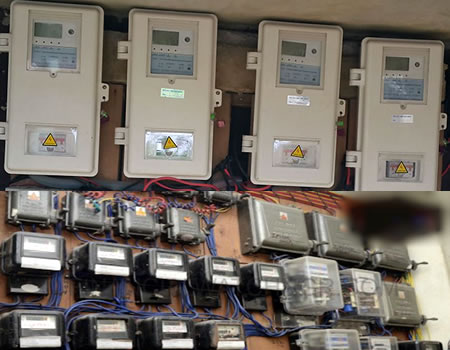
They also sought for stiffer penalties for energy theft and meter bypassing so as to make up for the about 40 per cent monthly loss incurred as a result of menace.
ANED’s Director of Advocacy and Research, Barrister Sunday Oduntan in a statement issued in Abuja on Wednesday after a public hearing on the Bill to Criminalise Estimated Billing at the National Assembly explained that the 11 DisCos are allowed a Capital Expenditure (CAPEX) of N305 billion to provide meters, maintain their networks and perform other obligations for a period of five years.
This according to the association, is unrealistic as N299billion of the total CAPEX is required to close the 4.1million metering gap.
As a result, they called for more capital expenditure (CAPEX) window stressing that the DisCos are making huge investments in providing meters for their customers to cut down estimated billings.
It further explained that metering alone contributes to an estimated 30 per cent reduction of their Collection Losses adding that; “Adequate CAPEX & OPEX provisions should be made under the electricity tariff, to ensure comprehensive metering, and legislative effort should be applied to criminalising energy theft and meter bypass and creating electricity special/mobile courts. This would assist in catalysing the desired large scale metering within the sector.”
However, ANED noted that to ensure a reduction in estimated billing, its members have ensured the 100 per cent metering of all Maximum Demand customers (large users) in their networks; adopted check-meters to measure consumption to ensure fair bill estimation; and adjust bills of customers where there are errors.
Also, it noted that the proposed amendment to the Electric Power Sector Reform Act (EPSRA) 2005 by criminalising estimated billing will conflict with the Share Sale Agreement (SSA), Performance Agreement and the EPSRA.
“It holds the possibility of a “Change of Law” determination that could, potentially, result in the federal government paying out an amount in excess of 5 billion dollars, in accordance with the related provision in the Performance Agreement.
“New customers may not be connected to the grid until the availability of meters, therefore denying them of service. Indeed, there would be a wholesale disconnection of all the customers currently on estimated billing,” the statement partly reads.
In the same vein, the Association also lamented the over N800 billion market shortfall saying this has further impeded DisCos’ ability to access the financing necessary for OPEX, CAPEX and loss reduction initiatives.
It blamed this on the non-cost reflective nature of the electricity tariff even as it called for new legislation that seeks to address the “historical challenges”.
WATCH TOP VIDEOS FROM NIGERIAN TRIBUNE TV
- Let’s Talk About SELF-AWARENESS
- Is Your Confidence Mistaken for Pride? Let’s talk about it
- Is Etiquette About Perfection…Or Just Not Being Rude?
- Top Psychologist Reveal 3 Signs You’re Struggling With Imposter Syndrome
- Do You Pick Up Work-Related Calls at Midnight or Never? Let’s Talk About Boundaries





